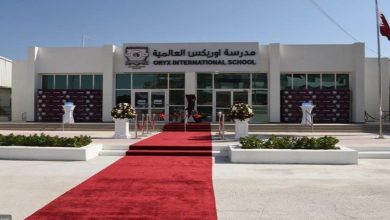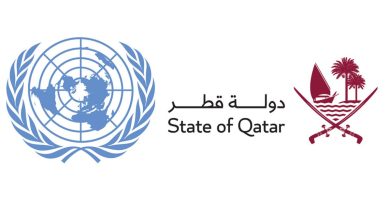Programme and Policy Officer (Resilient Livelihoods) – Consultant Level II

.
WFP celebrates and embraces diversity. It is committed to the principle of equal employment opportunity for all its employees and encourages qualified candidates to apply irrespective of race, colour, national origin, ethnic or social background, genetic information, gender, gender identity and/or expression, sexual orientation, religion or belief, HIV status or disability.
ABOUT WFP
The United Nations World Food Programme is the world's largest humanitarian agency fighting hunger worldwide. The mission of WFP is to help the world achieve Zero Hunger in our lifetimes. Every day, WFP works worldwide to ensure that no child goes to bed hungry and that the poorest and most vulnerable, particularly women and children, can access the nutritious food they need.
WPF celebrates and embraces diversity. It is committed to the principles of equal employment opportunity for all its employees and encourages qualified candidates to apply irrespective of race, color, national origin, ethnic or social background, genetic information, gender, gender identity and /or expression , sexual orientation, religion or belief, HIV status, physical or mental disability.
The World Food Programme (WFP) is the United Nations frontline agency fighting hunger. WFP reaches more than 80 million people every day – delivering food assistance in emergencies and working with smallholder farmers, communities and governments to improve nutrition and build resilience.
The WFP Regional Bureau for Eastern and Central Africa (RBN) is based in Nairobi and provides strategic direction, technical guidance, resource mobilization and management support to WFP operations and activities in ten countries: Burundi, Djibouti, Eritrea, Ethiopia, Kenya, Rwanda, Somalia, Sudan, South Sudan and Uganda.
BACKGROUND AND PURPOSE OF THE ASSIGNMENT
In the eastern Africa region, approximately 20 percent of the global population faces acute hunger. Ethiopia and South Sudan face two of the top ten worst global food crises which are still ongoing, and Sudan has entered a steep downward spiral towards the same direction. The region constitutes a microcosm of larger trends and food and nutrition security issues faced by communities, governments, and WFP itself. The climate crisis poses a significant risk to food systems, disproportionately affecting the most food- insecure people around the world. Especially in Eastern Africa region, land degradation is an increasingly serious issue, which leads to a situation where the double environmental and climate crises reinforcing each other. The impacts of climate variability and extremes are most prominent in the Eastern Africa Region, interacting with other main drivers of hunger and malnutrition, including conflict and economic shocks (now exacerbated by the COVID-19 pandemic), resulting in the increasing humanitarian needs.
At the same time, eastern Africa holds many of the answers to addressing these challenges, offering additional opportunities for WFP to fight hunger by adopting a transformative approach to food systems engagement. As WFP continues to work in food systems, it looks to align its programmes and activities, as well as its thinking, to adopt a holistic food systems lens. With the objective to transform its assistance, WFP will look to intentionally contribute to the development of a food system that will make it more nourishing, sustainable, equitable, and resilient for all. Through livelihoods within food systems initiatives in the region, WFP aims to strengthen vulnerable people’s and food systems’ capacities to absorb the impacts from different types of shocks and stressors by adapting their practices and transforming their livelihoods, across the humanitarian development peace nexus.
In light of the double environmental and climate crises mentioned earlier, WFP has had several examples of how it can strengthen its programming to increase restoration (nature-based solutions) especially through watershed management and other water- related programmes, which can help break this cycle and create the potential to positively transform food systems.
The consultant will focus on supporting strategy, policies, design, implementation, and research on WFP activities and initiatives in the region and beyond focusing on specific activities that can contribute to resilience building. These include asset creation and livelihoods, strengthening value chains, and improving access to markets and market- based solutions, across agricultural and pastoralist systems, in both rural and urban settings. S/he will work in close collaboration with the food systems team, as well as relevant focal points from the nutrition, school feeding, supply chain, social protection, and emergency response and preparedness teams to achieve the necessary programme integration.
KEY ACCOUNTABILITIES (not all-inclusive)
Working under the supervision of the Deputy Head of Food Systems, the Programme and Policy Officer (Resilient Livelihoods) will:
- Lead and supervise the livelihoods team
- Manage and set priorities for a team of technical specialists and operational personnel, building capacities as needed
- Supervise special projects within the team, ensuring deliverables are met, and expenditures are tracked as needed
- Thought leadership on resilient livelihoods and food systems
- Provide strategic direction, building on established resilience and food system frameworks, support country offices (COs) with their resilient livelihoods strategies and how these contribute to their overall food systems strategy development and programme implementation
- Lead discussions on developing innovative approaches for WFP programming within resilient livelihoods portfolio and its inclusion in guidance for COs
- Provide technical insight and coordination on WFP’s regional natural resource management, soil and water conservation, landscape and ecosystem restoration policies
- Develop and lead regional studies, assessments and research on topics related to his/her portfolio.
ADDITIONAL KEY ACCOUNTABILITIES
3. Provide technical backstopping to Country Offices on resilience building activities by:
- Support COs on the design, implementation, and oversight of resilient livelihoods programmes at country level, with a specific focus on asset creation and livelihoods, natural resource management, soil and water conservation, landscape and ecosystem restoration, and on their synergies with other programmes and activities (e.g. anticipatory action, climate services, access to financial services, school feeding, nutrition, and social protection, etc)
- Lead the team providing CO support on strengthening value chains, improving access to markets and market-based solutions, post-harvest management and youth engagement
- Ensure gender perspectives are effectively reflected in asset creation and livelihoods programming, and that they are designed to ensure the meaningful participation of women and men and the empowerment of marginalized groups;
- Advise on mainstreaming relevant cross-cutting issues within asset creation and livelihoods programming
- Support and provide guidance on his/her areas of expertise to COs as needed during the development of their Country Strategic Plans (CSPs) and project proposals; this entails working closely with RBN colleagues to ensure a coordinated approach and maximise synergies with climate risk management, DRR and climate change adaptation, emergency preparedness interventions
ADDITIONAL KEY ACCOUNTABILITIES
4. Knowledge management and capacity building
Support capacity building activities for RBN and COs’ staff, including:
-
- Support the development and facilitation of trainings tailored to the eastern Africa region and specific country contexts, including relevant background materials, to enhance the capacity of WFP staff and partners to design and deliver effective asset creation and livelihoods, improving access to markets and markets-based solutions, post-harvest losses reduction, and value chain development programmes.
- Work closely with colleagues from other programming areas to co-develop and incorporate relevant guidance on integrated resilience/ food systems programming in relevant trainings/documents to strengthen coherence
- Contribute to the development of knowledge and evidence-based products, including briefs, key messaging, talking points and case-studies
ADDITONAL KEY ACCOUNTABILTIESLong Description
5. Enhance overall coordination on asset creation and livelihoods and market access programmes and programmatic integration within programme teams as well as with procurement and logistics units
- Support better coordination with other food systems programmes at RBN and CO level, also working closely with other technical units in RBN (social protection, emergency preparedness, RAM, school feeding) to foster synergies for integrated approach to resilience building and DRR
- Liaise and strengthen coordination with relevant units in HQ working to promote greater coherence and coordination and coordinate provision of inputs and technical support to country offices on asset creation and livelihoods and smallholder markets support
- Participate and represent WFP in regional inter-agency meetings and other relevant fora
Long Description
6. Partnerships and fundraising
- Support the development of proposals, including reviewing and providing inputs into climate finance proposals, with elements of asset creation and livelihoods
- Support country offices engagement with relevant partners and stakeholders to scale up integrated resilience programmes, with a focus on strengthening government and community ownership and effectiveness of food security and nutrition programmes at regional, national and sub-national levels – including through extended field work
- Strengthen and develop operational partnerships with other organizations (governments, UN, NGO’s, academia and research institutions) to foster collaborative approaches and initiatives that improve resilience and livelihoods related assistance packages
- Support the development of MoUs, LTAs or expert rosters as needed to strengthen Country Offices access to relevant expertise;
- Monitor and support operational research and evidence generation on issues relevant to asset creation and livelihoods to support resource mobilisation, and to strengthen programme/proposals formulation
- Manage and contribute to the preparation and dissemination of timely analytical reports, publications, and a variety of information products for internal and/or external use
STANDARD MINIMUM QUALIFICATIONS
Education: Advanced university degree (Master’s degree or equivalent) in geography, environmental Science and management , development Studies, agronomy, agriculture, forestry, Climate Studies or related disciplines or a First University Degree with additional years of related work experience.
Language: Fluent in English including(writing and speaking ) is required
DESIRED EXPERIENCES FOR ENTRY INTO THE ROLE
- Minimum 6-10 years of post-graduate, progressively responsible professional experience working on environmental engineering and/or development programming, rural development, agriculture or other related fields;
- Country-level experience leading programme implementation and operationalizing programmatic policies on food security, natural resource management and sustainable development, rural livelihoods and poverty reduction, asset creation, access to markets, value chains, climate change adaptation and disaster risk management with communities;
- Demonstrable experience and understanding of sustainable development issues is required. Experience in resilience building through rural livelihoods, graduation pathways, access to finance, climate adaptation and urban food systems at the community level, and in collaboration with local and national government in east Africa will be considered an asset.
TERMS AND CONDITIONS
Type of contract: International Consultancy, Level II
Unit/Division: WFP Regional Bureau for East Africa (RBN)
Duty Station(City, Country): Nairobi, Kenya
Duration: 11 months
DEADLINE FOR APPLICATIONS
Deadline for applications: 10th July 2023
All employment decisions are made on the basis of organizational needs, job requirements, merit, and individual qualifications. WFP is committed to providing an inclusive work environment free of sexual exploitation and abuse, all forms of discrimination, any kind of harassment, sexual harassment, and abuse of authority. Therefore, all selected candidates will undergo rigorous reference and background checks.
No appointment under any kind of contract will be offered to members of the UN Advisory Committee on Administrative and Budgetary Questions (ACABQ), International Civil Service Commission (ICSC), FAO Finance Committee, WFP External Auditor, WFP Audit Committee, Joint Inspection Unit (JIU) and other similar bodies within the United Nations system with oversight responsibilities over WFP, both during their service and within three years of ceasing that service.
.
WFP has a zero-tolerance approach to conduct such as fraud, sexual exploitation and abuse, sexual harassment, abuse of authority and discrimination. All selected candidates will be expected to adhere to WFP’s standards of conduct and will therefore undergo rigorous background verification internally or through third parties. Selected candidates will also be required to provide additional information as part of the verification exercise. Misrepresentation of information provided during the recruitment process may lead to disqualification or termination of employment
WFP will not request payment at any stage of the recruitment process including at the offer stage. Any requests for payment should be refused and reported to local law enforcement authorities for appropriate action.



